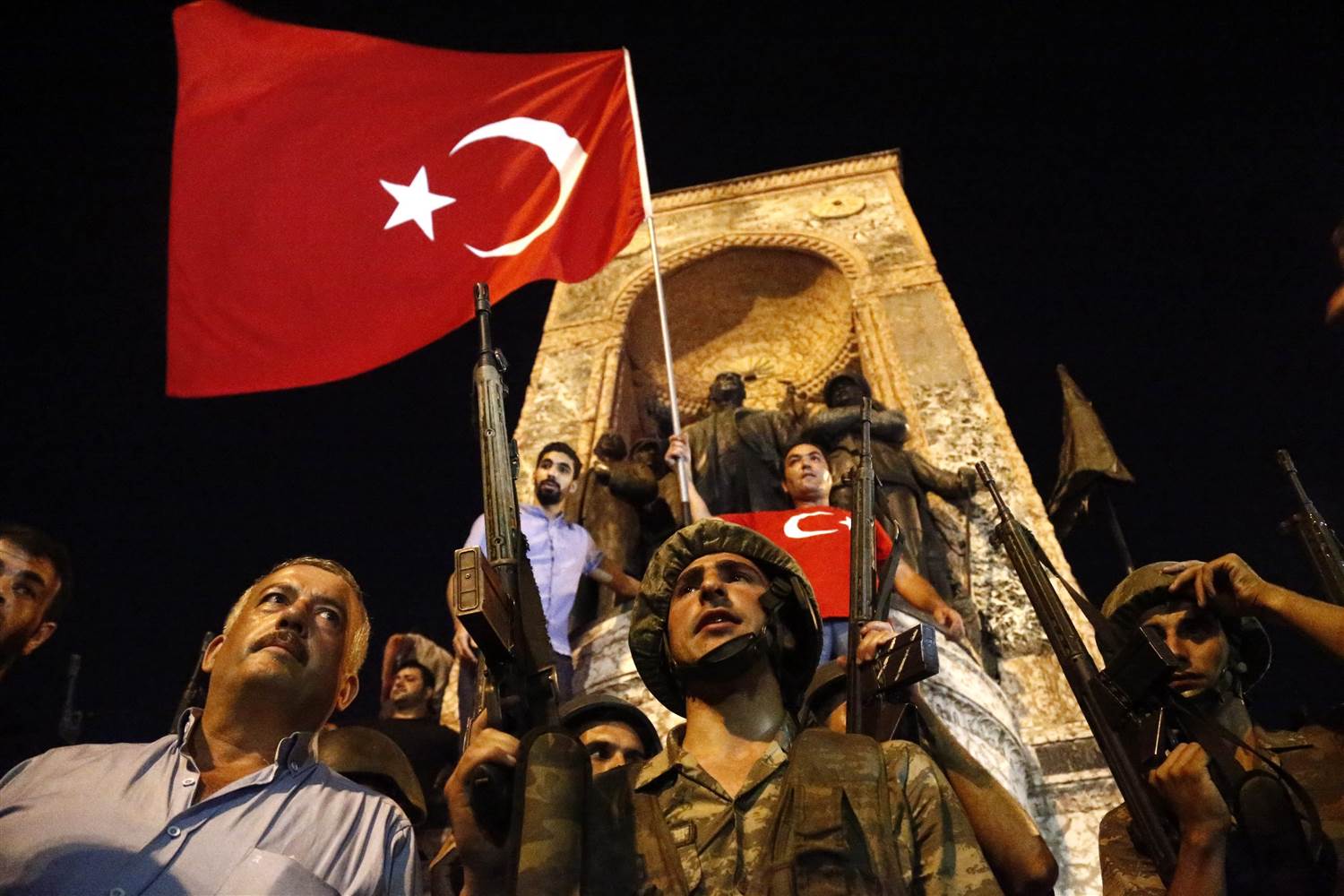[dropcap]T[/dropcap]he first rule of a coup d’état is that the plotters have to take control swiftly of the state broadcaster’s building to convince the nation that they are now in control. The military officers in Turkey that planned and carried out the coup which began on Friday night and now seems to be failing, went by the text-book.
Barely two hours after they had seized key positions in the capital Ankara and Turkey’s main city Istanbul, they were in the offices of the TRT station, forcing the anchor to read their message. The government of President Recep Tayyip Erdogan had been deposed, the army was now in control and a new constitution would be drafted soon. At that point it seemed like curtains for Erdogan.

The coup had been scheduled for the president’s holiday, but the plotters failed to hold him incommunicado at the resort in Marmaris on the Aegean coast. Before boarding a presidential jet back to Istanbul, Erdogan broadcast a message to his supporters, using FaceTime, shown on Turkey’s private television channels and also sent out on Twitter. He called on all Turkish citizens to take control of the city squares and the airports.
It worked, tens of thousands took to the streets, challenging the army’s tanks and making sure that when Erdogan’s plane arrived, it could land safely. By that time, police and the security services which remained loyal to the president, along with hundreds of civilians, were beginning to arrest many of the rebel soldiers.
Did those messages that Erdogan managed to get out using a smartphone, messaging apps and social media save him? The forces loyal to him may have won anyway and the people may have supported him all the same, but it certainly played a role. And it was grimly ironic that at the moment when Erdogan was cut off from his base of power, he resorted to the technology and networks he sought for years to demonize and shut down.
Since the same police forces brutally suppressed the anti-Erdogan demonstrations in Istanbul’s Gezi Park and in other cities in June 2013, he has attacked social media as a malignant force seeking to destroy Turkey – particularly Twitter which is extremely popular with young middle-class Turks, those less likely to support Erdogan.
Hundreds of citizens have been prosecuted for tweets mocking the president and at times courts have shut the service down. Meanwhile, Erdogan has stepped up his efforts to silence the independent and critical media. Some news organizations were forced to close, others were bought up by businessmen close to Erdogan. Journalists were cowed by arrests and prison terms for harming state security and damaging libel cases.
At his moment of need, it was those technologies and networks which made the rallying of his supporters possible and the private television networks and website which carried his message. Combined with a much older and more traditional form of mass communication – the loudspeakers of neighborhood mosques, which instead of calling the faithful to prayer exhorted them to go out and confront the coup plotters.
Erdogan is of course not the first dictator to be sorely challenged by social media. The Iranian regime crushed the Green Movement in 2009 but the protests were first galvanized by Facebook posts detailing election fraud and then the stark footage of demonstrators being beaten and killed on the streets.
In 2011, anger against Tunisia’s venal President Zine Ben Ali was stoked when details of his family’s corruption, from leaked U.S. diplomatic cables, was translated into Arabic and posted on Facebook. He lasted in power only a few more weeks after that. Egyptian President Hosni Mubarak tried to prevent such an outcome by shutting Egypt’s entire mobile phone and internet networks as violent protests against his rule began sweeping through the country. But it was too late by then.
President Erdogan who believes that the internet and twitter, as well as an independent media, are entities with anti-Turkish agenda, has now seen how they can be utilized also against those plotting against him. It is probably too much to expect, that now that he seems to have broken the coup against him, he will change his attitude towards them.
Originally published in Haaretz, An Anatomy of a Failed Turkish Coup.







